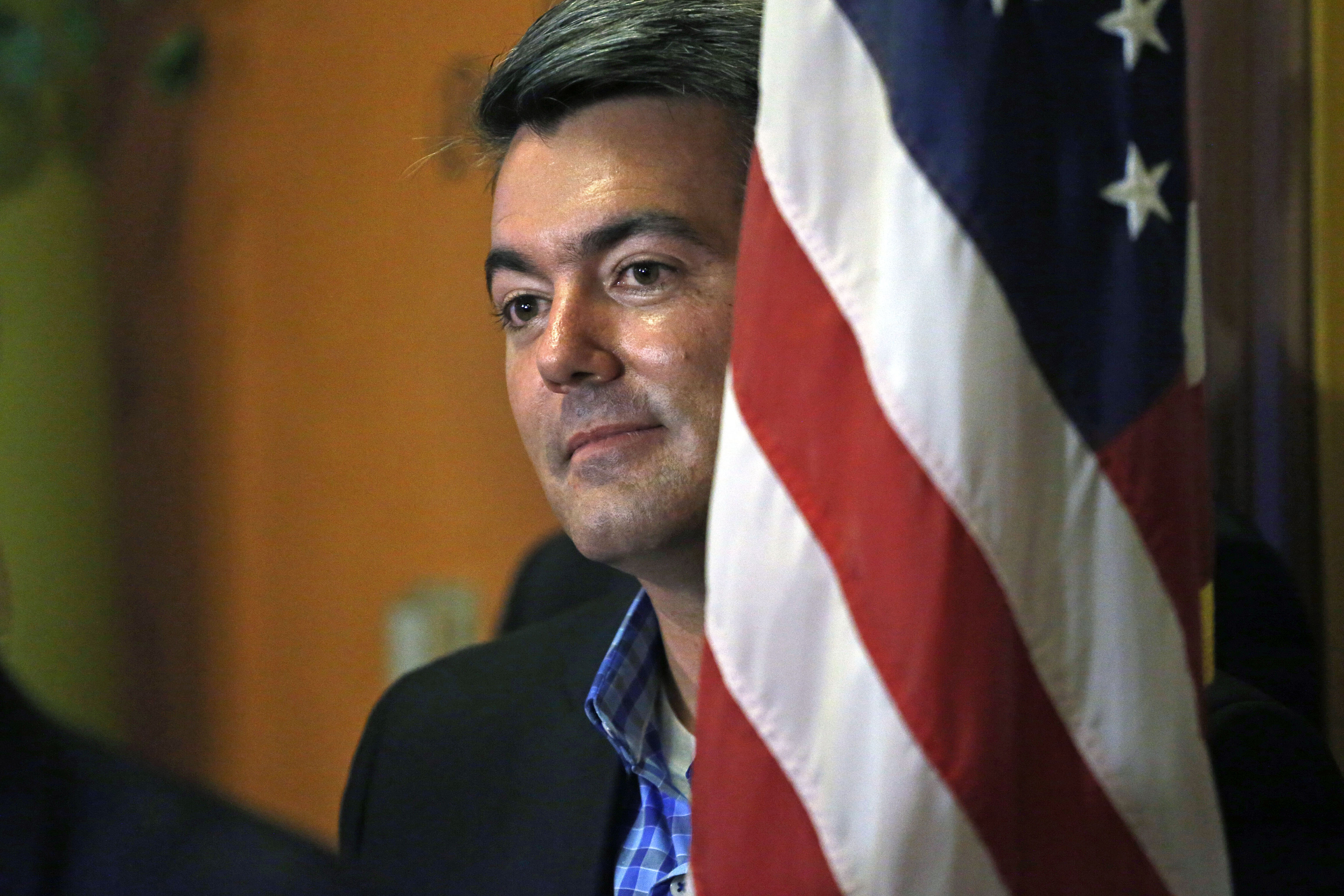Sen. Cory Gardner (R-CO) joined the majority of his colleagues on the Senate Subcommittee on East Asia, The Pacific, and International Cybersecurity Policy, which he chairs, in keeping mostly quiet on President Trump’s suggestion that China investigate former Vice President Joe Biden–while two Democrats on the committee criticized Trump.
Trump called on the government of China last Thursday, October 3, to investigate Biden, a request very similar to the one he made of Ukrainian President Volodymyr Zhelensky, which prompted the House’s ongoing impeachment inquiry.
The China suggestion prompted two of four Democrats on Gardner’s subcommittee to denounce Trump’s comment.
Two of five Republicans on the subcommittee have commented, with one saying Trump’s request wasn’t a big deal and the other saying it was appropriate.
Gardner hasn’t issued a public statement on Trump’s request of China, and his office did not respond to multiple requests for comment.
On Thursday, Gardner refused multiple times to answer directly if he thought it was appropriate for the president to ask a foreign government to investigate a political rival, instead suggesting that the impeachment inquiry was an inherently partisan effort.
“Look here’s what we’re doing: We saw immediately was a jump to a very partisan, serious use of a tool in the Constitution,” he told reporters.
Among Republican lawmakers silence a common response. According to CNN, of 80 Republican politicians contacted about Trump’s statements on China, “few” responded.
On Gardner’s subcommittee on East Asia, Senators Johnny Isakson (R-Georgia) and Todd Young (R-Indiana) have also not made public statements yet, and did not respond to multiple requests for comment.
Sen. Marco Rubio (R-Florida) downplayed the president’s China statements to CNBC, saying “it’s an offhand comment and an inappropriate one but not a real proposal or a real initiative that’s [being undertaken].”
He added, “I don’t think what he said was right. I don’t agree with it.”
Sen. Ron Johnson (R-Wisconsin) said it is not improper for the president, as chief executive of U.S. foreign relations, to ask other governments to provide information for American investigations when it serves the country’s interest.
“Sometimes you may need some information. You may need some access. You may need them to cooperate with, for example, U.S. FBI agents going there to investigate a potential crime,” Johnson told reporters at an event in Middleton, Wisconsin.
He clarified that he was not referring specifically to any investigation, and that he would not trust the Chinese government to investigate American affairs.
Sen. Tom Udall (D-New Mexico), who’s also on the East Asia subcommittee, was harsher in condemning Trump’s public comments on China.
“The president is violating our most deeply held founding principles by pressuring foreign governments – in public and in private – to interfere in our elections and target the president’s political opponents,” Udall said in a statement.
“By all appearances, he is abusing the powers of his office to try and benefit himself politically. The White House needs to stop stonewalling this investigation—the American people deserve to know all the facts.”
During a personal phone call in June, Trump is also reported to have promised Chinese President Xi Jinping that the U.S. would be silent on pro-democracy protests in Hong Kong while the country’s are in talks for a trade deal.
Sen. Ed Markey (D-MA), the Democratic leader on the East Asia subcommittee, wrote an open letter to Trump demanding an explanation of his conversation with Xi.
“You have now repeatedly undercut America’s efforts to press Beijing on violations of political freedoms and human rights,” he wrote.
“You gave the leader of the Chinese Communist Party your tacit approval for continued coercion and dehumanization of protestors. Even worse, you made this commitment on the same call in which you reportedly discussed your domestic political rivals with the leader of China. Thus, President Xi may plausibly have concluded that aiding your campaign efforts would increase his freedom of action in Hong Kong.”
Colorado Politics reports Gardner called Trump’s conversation with Ukraine a “serious matter,” but dodged the impeachment question, instead offering, “Let’s get to the bottom of this.”
As the House impeachment inquiry, which the White House has publicly refused to cooperate with, continues, Gardner will likely be under increased scrutiny as he faces reelection.
As the Washington Post reports, Gardner is one of four Republican senators being targeted by a $3.1 million pro-impeachment ad campaign on behalf of billionaire Democratic presidential candidate Tom Steyer.
Gardner appears to have taken note of the scrutiny he is under. In the same interview when he refused several times to say if he thought the president’s actions were appropriate, he asked, “Why is that when [the press does] stories, or we see reports in the news, it’s about four states: Colorado, Arizona, Maine and North Carolina?”




